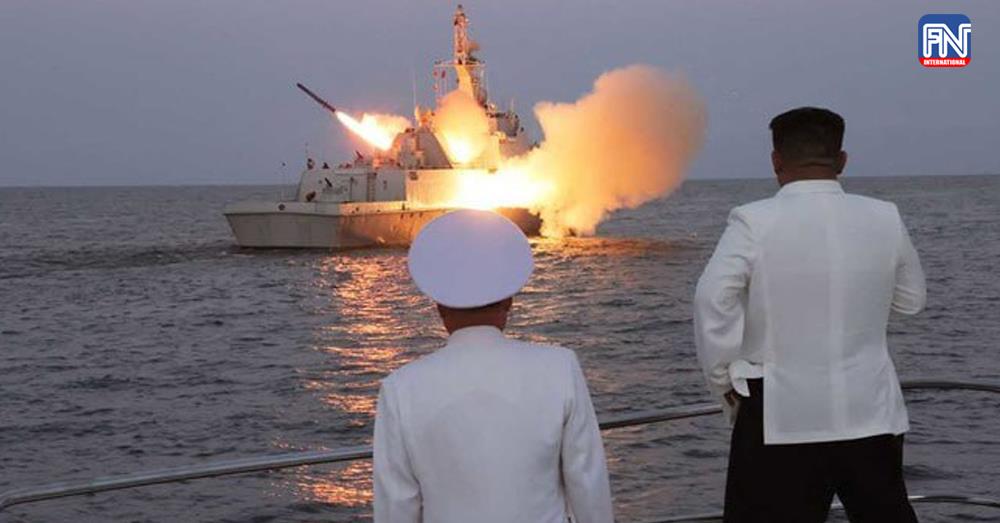SEOUL, Aug 21 (Reuters) - North Korean leader Kim Jong Un has overseen a test of strategic cruise missiles, state media KCNA said on Monday, as South Korea and the United States kicked off annual military drills which Pyongyang sees as a rehearsal of war.
Kim visited a navy fleet stationed on the east coast to inspect the test aboard a warship, KCNA said, without specifying the date of his trip.
The launch was aimed at verifying the "combat function of the ship and the feature of its missile system," while improving the sailors' capability to carry out an "attack mission in actual war," KCNA said.
"The ship rapidly hit target without even an error," it said.
Kim touted the ship for maintaining "high mobility and mighty striking power and constant preparedness for combat to cope with sudden situations," KCNA said.
The latest missile test came as South Korea and the United States began the Ulchi Freedom Shield summer exercises on Monday, designed to enhance their joint responses to North Korea's evolving nuclear and missile threats.
Pyongyang has denounced the allies' military drills as a rehearsal for nuclear war.
South Korea's military has said this year's exercises will be held on the "largest scale ever", mobilising tens of thousands of troops from both sides, as well as some member states of the U.N. Command.
South Korean lawmakers have said the North could seek to fire an intercontinental ballistic missile or take other military action to protest the allies' drills or last week's summit of South Korea, the United States and Japan.
North Korea has been constantly testing what it calls "strategic cruise missiles" since late 2021. Some analysts have said the missiles could be tipped with nuclear bombs. While modernising and bolstering its naval power, North Korea showcased a new nuclear-capable underwater attack drone in March.
Aboard the ship, Kim vowed to reinforce the navy with "improved combat efficiency and full modern means of surface and underwater offensive and defensive" capabilities, KCNA said.
"We would put spurs to the modernisation of naval weapons and equipment including the building of powerful warships and the development of shipboard and underwater weapon systems," he was quoted as saying.
"The Navy should thoroughly keep constant mobility and steadily increase the capability for actual war so that they can actively carry out their combat missions in the unfavourable circumstances."





